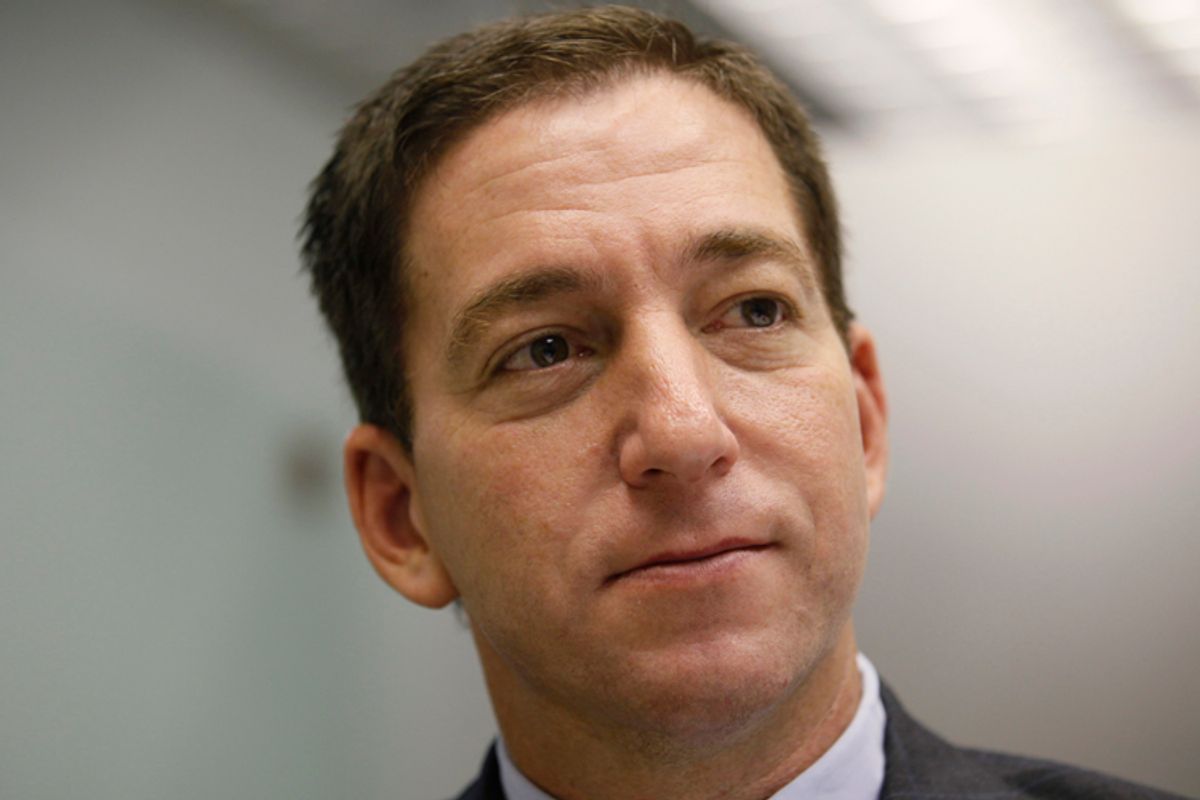It was a U.K.-based newspaper (albeit its U.S. operation) and a writer based in Brazil (our old friend Glenn Greenwald) at the forefront of breaking the latest historic revelations about the sprawling NSA spy dragnet. For Janine Gibson, editor-in-chief of Guardian U.S., this is no accident given a poverty she sees in robust national security reporting in the U.S., underpinned by a misplaced patriotism. She told HuffPo:
[T]here is a lack of skepticism on a whole in the media on the issue of national security." In the U.S., she said, there can be "a sense that it is unpatriotic to question the role that the security services play."
Indeed, Gibson's comments are supported by certain facts that emerged in Bradley Manning's pretrial hearing. The private noted in a statement that he had attempted to approach the New York Times, the Washington Post and Politico with his document trove -- all of whom turned him away -- before he provided WikiLeaks with the classified information.
However, it's important to note that national security reporters' acquiescence to the government aligns, too, with a government that is uncooperative, if not draconian, with journalists who refuse to fall in line. James Rosen of Fox News, for example, was listed as a possible "co-conspirator" in espionage in an FBI affidavit as part of a government leaks investigation. Julian Assange's lawyer believes it is "more than likely" that the Justice Department has prepared a sealed indictment against the publisher for his role in making public information obtained by Manning.
It's interesting to note, too, that in reporting on Glenn Greenwald's role in reporting on the NSA leaked documents, the Times first describe Greenwald as both a "blogger" and an "activist." Who gets to be an actual journalist, with attendant media protections from prosecution, is very much at stake here. The troubling pattern that we see emerging in this country is that "journalist" has come to designate a reporter who will fall in line, who won't push to shine light on shrouded state operations. Sadly, as Gibson's comments indicate, all too many U.S. national security reporters are happy to accept this designation.

Shares